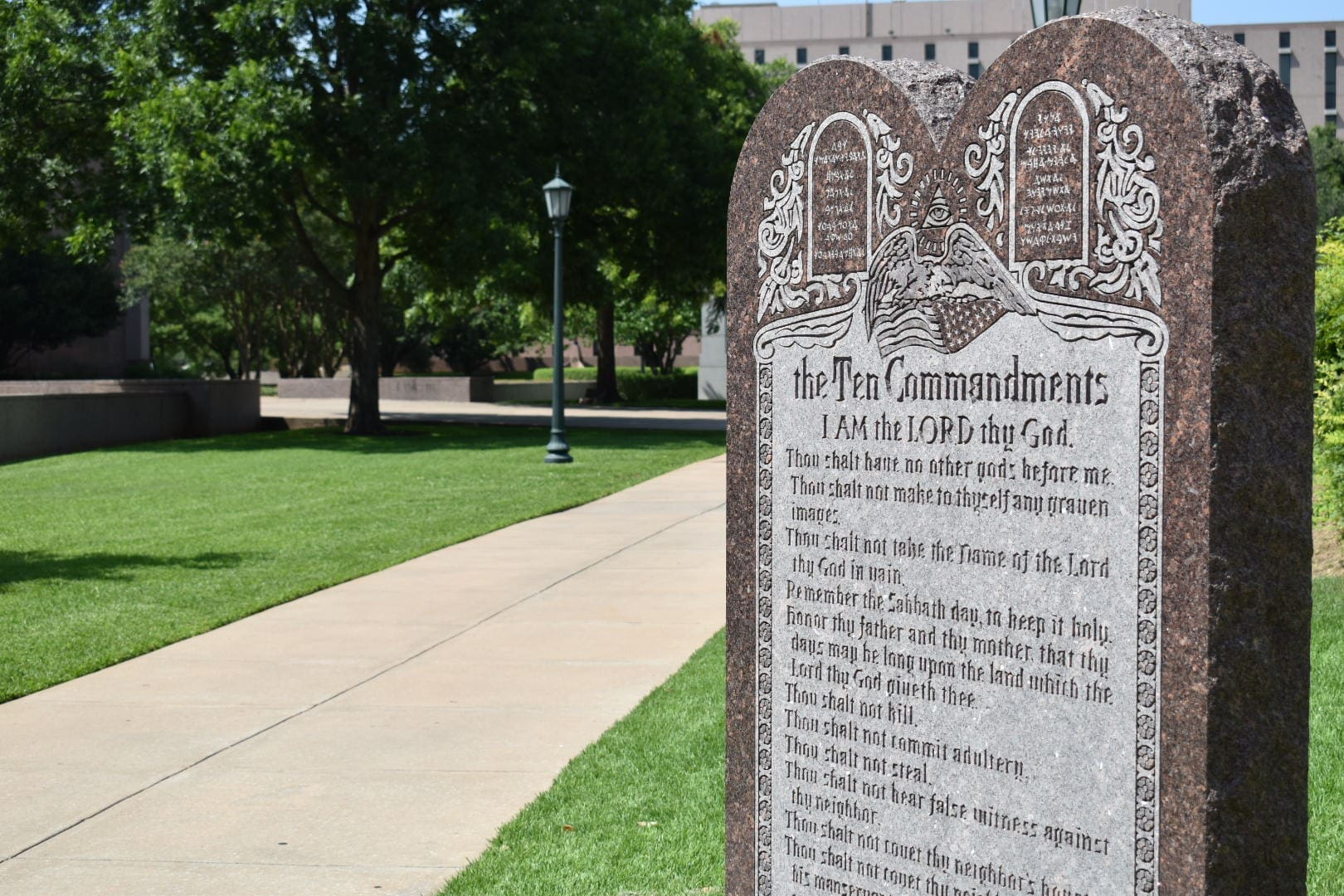When COVID closures prompted parents across Texas to take a closer look at what their kids read in school, many were shocked at what they found: books with sexually explicit content and images that clearly fit the definition of obscenity.
Parents were also appalled when school officials dismissed their concerns, hiding behind district policies to defend exposing underage students to obscene material. They were shocked yet again to find state law giving cover to otherwise-illegal obscenity when it’s in schools.
“If you handed it out to kids on the street, you’d be arrested,” according to a new documentary exposing how schools are sexualizing kids.
Amid pushback from parents about inappropriate and even pornographic material available to children in public schools, State Rep. Matt Krause (R–Fort Worth) launched an inquiry last October into potentially questionable books in school libraries and classrooms.
In November, Gov. Greg Abbott directed the Texas Education Agency, Texas State Library and Archives Commission, and State Board of Education to “develop statewide standards to prevent the presence of pornography and other obscene content in Texas public schools.”
While waiting for those standards to materialize, some districts are continuing to defend sexually explicit books that parents say are inappropriate for young students.
Others are listening to families, revising their book review policies, and making at least some adult content inaccessible to underage school kids.
Parents’ Concerns vs. District Policies
Are parents really finding porn in schools?
Granbury ISD officials think so. Responding to parents’ concerns, the district removed five sexually explicit books by Abbi Gline in January and is reviewing about 130 more. The school board also amended its local district policy to allow the removal of materials that are “pervasively vulgar or based solely upon the educational suitability of the resource in question.”
“The books I removed were vulgar; the writing was sexually explicit and, in my opinion, pornographic,” Superintendent Jeremy Glenn said at a school board meeting late last month. “It has no place in the hands of 13-, 14-, or 15-year-old kids, and our school owes our community an apology for ever having allowed it into our schools.”
“The material in those books is too sexually explicit and completely inappropriate for a high school library collection,” Granbury High School Principal Jeremy Ross said in a statement, adding the district is also reviewing its book procurement process.
Prosper ISD parents and citizens raised similar concerns and asked for a review of 82 books found in district libraries, including the sexually explicit “Lawn Boy” and “Gender Queer.”
Superintendent Holly Ferguson defended the district’s policy. She said “the Pico standard” for “book-banning decisions” prevents school officials from removing library books “simply because they dislike the ideas in the book.” Ferguson went on to say, “However, school officials may remove a book from a school library if it is not age-appropriate for the children of the school.”
Her reference to Island Trees School District vs. Pico, a 1982 U.S. Supreme Court case, also directly quoted a document produced last year by the Texas Association of School Boards (TASB) Legal Services describing practices for selecting and reviewing instructional and library materials in Texas public schools. (Ferguson added the term “book-banning.”)
In addition to lobbying on behalf of school district officials at the expense of taxpayers, TASB creates district policies and offers legal advice to protect districts’ interests—which often directly conflict with the interests of students, parents, and taxpayers.
Prosper ISD parents also asked for “a more formalized and transparent process” for selecting and purchasing school library books.
That’s important, because as TASB noted, “school districts have significant local control over the selection of materials used for classroom instruction and regarding what content to place in school libraries,” but once the books are in, removing them is difficult.
State Rep. Jared Patterson (R–Frisco) contacted Ferguson about the sexually explicit books in Prosper ISD libraries. He asked the district to be transparent with parents and taxpayers, and to hold accountable vendors and staff who provided and approved obscene books.
“To be very clear, this is not a matter of policy or a disagreement on teaching materials,” he wrote in a January 25 letter. “This is criminal activity, as possession or promotion of child pornography is illegal in Texas.”
Patterson said he later met with district officials to discuss “the processes surrounding inappropriate materials.”
“As we continue to find explicit pornographic materials in school libraries, processes must change,” he said in a January 31 letter to TEA pressing the agency to expedite its new guidelines for keeping obscene books out of schools.
Other districts are defending books challenged by parents and standing by their selection and review policies.
In December, moms from McKinney to El Paso protested against schools exposing their young kids to “The Perks of Being a Wallflower,” a 1999 novel that contains explicit descriptions of minors engaging in sex, including a teenager being raped.
“I can’t believe they think this book is okay for students to read and they claim it’s educational,” said McKinney ISD mom Rachel Elliott.
She asked officials to remove the book from school libraries, but a deputy superintendent said it “meets the selection criteria” in the board’s policy on instructional resources and will “continue to circulate without restriction.”
McKinney parents have continued to call for a transparent review of library books available to children.
“The process is the same in districts across the state,” McKinney ISD Superintendent Rick McDaniel said at a January 25 school board meeting, adding that no books are currently being challenged.
A McKinney dad who spoke at that same meeting said the district had decided to keep “Wallflower” and another book challenged as obscene, “L8r G8r,” in school libraries.
He called on the board to change the district’s local policy, which hasn’t been updated since 2017.
“This is not a book-burning thing,” he said. “There are age limits on movies, alcohol, and other things. We’re just asking for you to protect our kids.”
Parents in Keller ISD were shocked to find “Gender Queer,” a 2019 graphic novel featuring explicit illustrations of adolescents performing various sex acts, in a high school’s online library. The book has been found in other Texas districts (including Prosper, Dallas, and Austin), and parents across the country have been calling for it to be taken out of their kids’ schools.
One local mom called it “legitimate visual porn, a felony offense,” adding administrators pulled the book only because of parents’ pressure, “realizing the severity of distributing porn.”
Keller officials said last year they were “changing the process we use to review and approve books and related materials to prevent future incidents.” But the district is now requiring parents participating in a book-review committee to sign nondisclosure agreements, a lack of transparency that breeds further distrust.
Parents in Leander ISD have been pleading for months for school officials to keep kids from seeing books like “In the Dream House” that they say “have a central theme: sexualization of children.”
In December, Leander school officials pulled some sexually explicit books from classrooms and book clubs, but they’re still in school libraries.
“We are asking you to protect children from harm,” a Leander parent told the school board. “Not all speech is protected, nor is it without consequences. Obscenity, defamation, and child pornography are not free speech.”
Obscenity Exemptions
Obscenity is not protected as free speech and is a crime under state and federal laws.
“Not only is the presence of pornography in schools inappropriate, it is also against the law,” Abbott wrote to TEA in November. “In Texas, it is illegal to provide pornography to anyone under the age of 18.”
Texas statutes define obscene material as sexually explicit material that, “taken as a whole, lacks serious literary, artistic, political, and scientific value.” It can include visual depictions, spoken words, or written text.
Laws are harsher when minors are exposed to obscenity or are depicted in obscene material, including drawings, cartoons, or paintings that appear to show minors engaged in sexually explicit conduct.
It’s a Class A misdemeanor to make “harmful” obscene material available to a minor. Promoting obscene material is a second-degree felony if it depicts children under the age of 18 engaging in sex acts.
When books like “Gender Queer” are in schools, both crimes are committed.
Yet it’s “an affirmative defense to prosecution” under Texas Penal Code Sec. 43.24 “that the sale, distribution, or exhibition was by a person having scientific, educational, governmental, or other similar justification.”
TASB’s legal advisory suggests state laws shield school officials:
Both the definition of harmful material and the affirmative defense would potentially shield a well-meaning educator who thought challenged materials served an educational purpose.
Parents tried to get rid of the obscenity exemptions in state law in 2019.
House Bill 3135 would have eliminated the educational and governmental exceptions. But lawmakers in the Republican-controlled House failed to put the bill on the calendar for a vote.
Transparency, Accountability, and Free Speech
Texas parents say they want to know what their children are reading in school, and they want a say in how their district selects and reviews library books.
Abbott said new statewide selection standards must ensure “transparency about the materials being taught in the classroom and offered in school libraries.”
“No one is asking to ban books,” said Leander parent Lori Hines. “We are asking for age-appropriate reading material that advances independent thought and critical thinking.”
But the Texas Library Association opposes efforts by Hines and other parents to “restrict the freedom to read through banning, removing, or other forms of restricting access to books or other materials,” saying in an October statement that letting kids read whatever they want is “a human right, protected by the First Amendment.”
TASB also claims removing library books “raises constitutional concerns.”
According to TASB ‘s legal advisory, “Once a resource has been made available in a school library, removal of the resource implicates students’ First Amendment rights.”
Keller ISD school board member Charles Randkley calls those claims “misguided” when it comes to obscene material.
“Unfortunately, there remains a misguided belief by some that young minds are First Amendment free-for-alls, and sexually explicit books have greater intrinsic value if they deal with diverse perspectives,” Randkley wrote in an opinion piece last week. “These positions are value judgments shaped by personal bias and beliefs, not rooted in impartiality, child safety or education.”
How do we fix this? It starts with recognition this is not a one-book-in-one-school problem. It starts with a realization that supporting inquiry and literacy and protecting children are not mutually exclusive ideas. It starts with acknowledging pornography cast through the lens of representation is still pornography. It starts with transparency, evidence-based policies, a shared purpose, and participation of all stakeholders.
Who Decides?
Each Texas school district has its own local policies for buying and reviewing books, but they are based on standard policy templates provided by TASB.
District policies include language that purports to conform to federal and state requirements.
Yet the policies are clearly allowing underage school children to be exposed to obscene material, including books that fit the legal definition of child pornography.
Abbott’s directive for TEA to create new statewide guidelines said Texas schools must have “an appropriate and transparent process, which includes parents and community members, to vet school and library materials before they are used.”
It’s up to parents and all citizens to stay involved in their local school districts and demand transparency and accountability from their elected officials.





